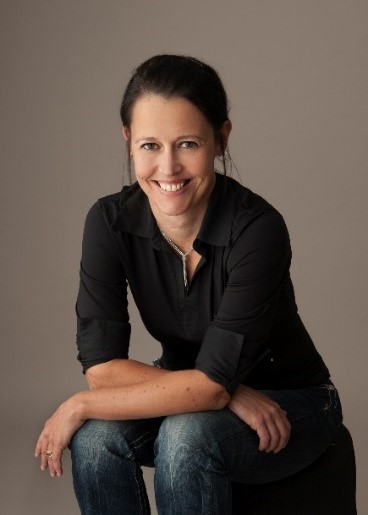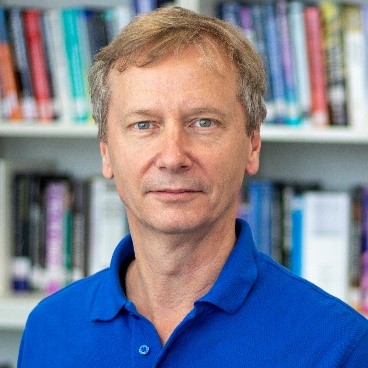Program (tentative)
All days Tuesday, October 19 Wednesday, October 20 Thursday, October 21
| New York (EDT) | Lisbon (WEST) | Brussels (CEST) | Beijing (CST) | (show all)(hide all)Tuesday, October 19, 2021 |
| 9:00 AM | 2:00 PM | 3:00 PM | 9:00 PM | Opening Cerimony |
| 9:10 AM | 2:10 PM | 3:10 PM | 9:10 PM | (show details)(hide details) Special Session 1
Signal Processing and Hardware Architectures for IoT and Low-Latency Communication Systems
Chaired by Liang Liu (Lund University) and Ove Edfors (Lund University)
A stage-wise conversion strategy for low latency deformable spiking CNNA novel blind detection method and FPGA implementation for energy-efficient sidelink communicationsFlexible Channel Estimation for 3GPP 5G IoT on a Vector Digital Signal ProcessorInitial Analysis of Dynamic Panel Activation for Large Intelligent SurfacesLow-Latency Parallel Hermitian Positive-Definite Matrix Inversion for Massive MIMO
|
| 10:00 AM | 3:00 PM | 4:00 PM | 10:00 PM | (show details)(hide details) Keynote 1
Specialization in Hardware Architectures for Deep Learning
Michaela Blott, Xilinx, Ireland
Chaired by Andreas Burg (EPFL) 
Abstract:Neural Networks are playing a key role in enabling machine vision and speech recognition however their computational complexity and memory demands are challenging which limits their deployment in particular within energy-constrained, embedded environments. To address these challenges, a broad spectrum of increasingly customized and heterogeneous hardware architectures has emerged, exploiting optimizations such as custom arithmetic and sparsity. Speaker Biography:Michaela Blott is a Fellow at Xilinx Research in Dublin, Ireland, where she heads a team of international scientists driving exciting research to define new application domains for Xilinx devices, such as machine learning. |
| 11:00 AM | 4:00 PM | 5:00 PM | 11:00 PM | (show details)(hide details) PhD Forum
Chaired by Alexios Balatsoukas-Stimming, (Eindhoven University of Technology)
Fully Convolutional Network-Based DOA Estimation with Acoustic Vector SensorLow Resource Species Agnostic Bird Activity DetectionDigital Predistortion with Compressed Observations for Cloud-based LearningUnderstanding the Energy vs. Adversarial Robustness Trade-Off in Deep Neural NetworksFault-Tolerance of Binarized and Stochastic Computing-based Neural Networks |
| 12:40 PM | 5:40 PM | 6:40 PM | 12:40 AM | Break Advertising Sponsors & Coimbra Tourism |
| 1:00 PM | 6:00 PM | 7:00 PM | 1:00 AM | (show details)(hide details) Regular Session 1
Signal Processing Algorithms and Software
Chaired by Georgios Karakonstantis, (Queen's University Belfast), Nuno Roma, (University of Lisbon)
Globally Assisted Instance Normalization for Bandwidth-Efficient Neural Style TransferComputationally-efficient voice activity detection based on deep neural networksMixed Precision l1 Solver for Compressive Depth Reconstruction: An ADMM Case StudyCommunication and Computation Reduction for Split Learning using Asynchronous Training |
| New York (EDT) | Lisbon (WEST) | Brussels (CEST) | Beijing (CST) | (show all)(hide all)Wednesday, October 20, 2021 |
| 9:00 AM | 2:00 PM | 3:00 PM | 9:00 PM | (show details)(hide details) Regular Session 2
Algorithms and Architectures for Communications
Chaired by Emmanuel Boutillon (Université de Bretagne Sud), Marco Gomes (University of Coimbra)
Energy-Efficient Adaptive Modulated Fixed-Complexity Sphere DecoderParallel CN-VN processing for NB-LDPC decodersShort Codes with Near-ML Universal Decoding: Are Random Codes Good Enough?Time sliding window for the detection of CCSK framesImplementing a LoRa Software-Defined Radio on a General-Purpose ULP Microcontroller |
| 10:00 AM | 3:00 PM | 4:00 PM | 10:00 PM | (show details)(hide details) Keynote 2
From Compressive Sensing to Compressive Analytics: A New Design Paradigm for Light-Weight Intelligent Biomedical Signal Processing
Andy Wu, National Taiwan University
Chaired by Andreas Burg (EPFL) 
Abstract:Compressive sensing (CS) is a promising solution for physiological signal acquisition in wireless healthcare systems. It enables new reduced-complexity designs of sensor nodes and helps to save overall transmission power in the wireless sensor network. Many CS-related sensors and reconstruction chips had been developed over past years. However, compared with the small sensor nodes, the reconstruction cost of the CS signals becomes dominant. Reconstructing all received CS signals becomes another significant overhead and bottleneck before they are sent to machine learning (ML) algorithms for data analytics. In this talk, we introduce a new design framework called Compressive Analytics (CA). By extracting the deterministic information of the CS signals, we can perform data analytics directly in the compressed domain “without” reconstructing the received CS signals. There are two advantages: Firstly, we can avoid the costly CS reconstruction operations at the receiver side. Secondly, we can perform the ML algorithm (e.g., SVM) in the compressed domain (in a much smaller dimension), rather than in the original signal domain, resulting in low-complexity ML. We exemplify the proposed CA by using two design cases. The first one is detecting Atrial Fibrillation (AF) from CS-compressed ECG signals. The overall parameters and multiplications are only 5% compared with the conventional “Reconstruction Learning (RL)” mechanism (Reconstruction followed by ML). The second one is compressed-domain ECG-based user identification. The ECG signal is a natural biometric that be measured continuously and transmitted over wireless channels. In certain extreme environments like clean room, it becomes the only viable solution for continuous biometric user identification. We will show a live demo of the proposed CS-domain ECG-based user identification by using MediaTek’s Sensio watch. The topics presented in this talk demonstrate the feasibility of linking CS directly with ML while bypassing the expensive CS reconstruction stage. They are applicable to CS-based wireless healthcare systems when extreme light-weight and low-power detection of physiological signals is in demand. Speaker Biography:An-Yeu (Andy) Wu (IEEE M’96-SM’12-F’15) received the B.S. degree from National Taiwan University in 1987, and the M.S. and Ph.D. degrees from the University of Maryland, College Park in 1992 and 1995, respectively, all in Electrical Engineering. |
| 11:00 AM | 4:00 PM | 5:00 PM | 11:00 PM | (show details)(hide details) Regular Session 3
Machine Learning Algorithms and Architectures
Chaired by Joseph R. Cavallaro (Rice University), Jani Boutellier (University of Vaasa)
TernGEMM: GEneral Matrix Multiply Library with Ternary Weights for Fast DNN InferenceAutomatic Generation of Dynamic Inference Architecture for Deep Neural NetworksExploration and Generation of Efficient FPGA-based Deep Neural Network AcceleratorsOneAI - Novel Multipurpose Deep Learning Algorithms for UWB Wireless NetworksDesign and Implementation of Autoencoder-LSTM Accelerator for Edge Outlier Detection |
| 12 Noon | 5:00 PM | 6:00 PM | 12 Midnight | (show details)(hide details) Regular Session 4
Signal Processing Hardware Architectures and VLSI
Chaired by Warren Gross (McGill University), Xinmiao Zhang (Ohio State University)
A Memory-Efficient Hardware Architecture for Deformable Convolutional NetworksEfficient Architecture for Long Integer Modular Multiplication over Solinas PrimeAn Efficient Parallel Architecture for Resource-Shareable Reed-Solomon EncoderHigh-Throughput VLSI Architecture for GRAND Markov Order |
| 12:40 PM | 5:40 PM | 6:40 PM | 12:40 AM | Break Advertising Sponsors & Coimbra Tourism |
| 1:00 PM | 6:00 PM | 7:00 PM | 1:00 AM | (show details)(hide details) Special Session 2
Signal Processing and VLSI for 6G
Chaired by Christoph Studer (ETH Zurich) and Farhana Sheikh (Intel Corporation)
Uplink Energy Efficiency of Cell-Free Massive MIMO with Transmit Power Control in Measured Propagation ChannelsCompressive Estimation of Wideband mmW Channel using Analog True-Time-Delay ArrayBeam Slicing for Jammer Suppression in mmWave Massive MU-MIMOA Scalable Generator for Massive MIMO Baseband Processing Systems with Beamspace Channel EstimationAn On-Off Receiver Array for Low-Power Scaling of mmWave Massive MIMO |
| New York (EDT) | Lisbon (WEST) | Brussels (CEST) | Beijing (CST) | (show all)(hide all)Thursday, October 21, 2021 |
| 9:00 AM | 2:00 PM | 3:00 PM | 9:00 PM | (show details)(hide details) Regular Session 5
Signal Processing Applications
Chaired by Roger Woods (Queen's University Belfast), Ching-Te Chiu (National Tsing Hua University, Taiwan)
DFBNet: Deep Neural Network based Fixed Beamformer for Multi-channel Speech SeparationEfficient Mind-wandering Detection System with GSR Signals on MM-SART DatabaseLeveraging Transprecision Computing for Machine Vision Applications at the EdgeImplementation of a Two-Dimensional FFT/IFFT Processor for Real-Time High-Resolution Synthetic Aperture Radar ImagingComplexBeat: Breathing Rate Estimation from Complex CSI |
| 10:00 AM | 3:00 PM | 4:00 PM | 10:00 PM | (show details)(hide details) Keynote 3
Addressing 6G Energy Efficiency with a Gearbox-PHY
Gerhard Fettweis, TU Dresden
Chaired by Andreas Burg (EPFL) 
Abstract:Over the last decades, cellular radio access has delivered a phenomenal 100x increase in data rate every decade. We are further projecting a 100x increase in data rate over the next 10 years. Assuming a constant energy per transmitted bit, this would not be possible. Up to date, semiconductor scaling, as well as circuit and network innovation has kept the required energy within boundaries. However, physical limits are starting to cloud the future. Speaker Biography:Gerhard P. Fettweis, F’09, earned a Ph.D. under H. Meyr at RWTH Aachen. After a postdoc at IBM Research, San Jose, he joined TCSI, Berkeley. Since 1994 he is Vodafone Chair Professor at TU Dresden. Since 2018 he is founding director of the new Barkhausen Institute. 2019 he was elected into the DFG Senate. He researches wireless transmission and chip design, coordinates 5GLab Germany, spun-out 17 tech and 3 non-tech startups, and is member of the German Academy of Sciences (Leopoldina), and Germany Academy of Engineering (acatech). |
| 11:00 AM | 4:00 PM | 5:00 PM | 11:00 PM | (show details)(hide details) Special Session 3
Stochastic Signal Processing
Chaired by Warren Gross (McGill University), Chaitali Chakrabarti (Arizona State University)
Scalable Hardware Architecture for Invertible Logic with Sparse Hamiltonian MatricesReconfigurable Neural Synaptic Plasticity based Stochastic Deep Neural Network ComputingHartley Stochastic Computing For Convolution Neural NetworksDesign and Implementation of a Highly Accurate Stochastic Spiking Neural Network |
| 11:40 AM | 4:40 PM | 5:40 PM | 11:40 PM | Break Advertising Sponsors & Coimbra Tourism |
| 12 Noon | 5:00 PM | 6:00 PM | 12 Midnight | (show details)(hide details) Special Session 4
Energy-Efficient Hardware Architectures for ML and Neuromorphic Computing
Chaired by Deepak Dasalukunte (Intel Corporation), Richard Dorrance (Intel Corporation)
Evaluation of Low-Voltage SRAM for Error-Resilient Augmented Reality ApplicationsEnergy Efficiency of Photonic Convolution for Artificial Intelligence WorkloadsEfficient Neuromorphic Signal Processing with Loihi 2Exploration of Energy-Efficient Architecture for Graph-Based Point-Cloud Deep LearningA Multi-Domain Architectural Efficiency Metric |
| 12:50 PM | 5:50 PM | 6:50 PM | 12:50 AM | Closing Cerimony |